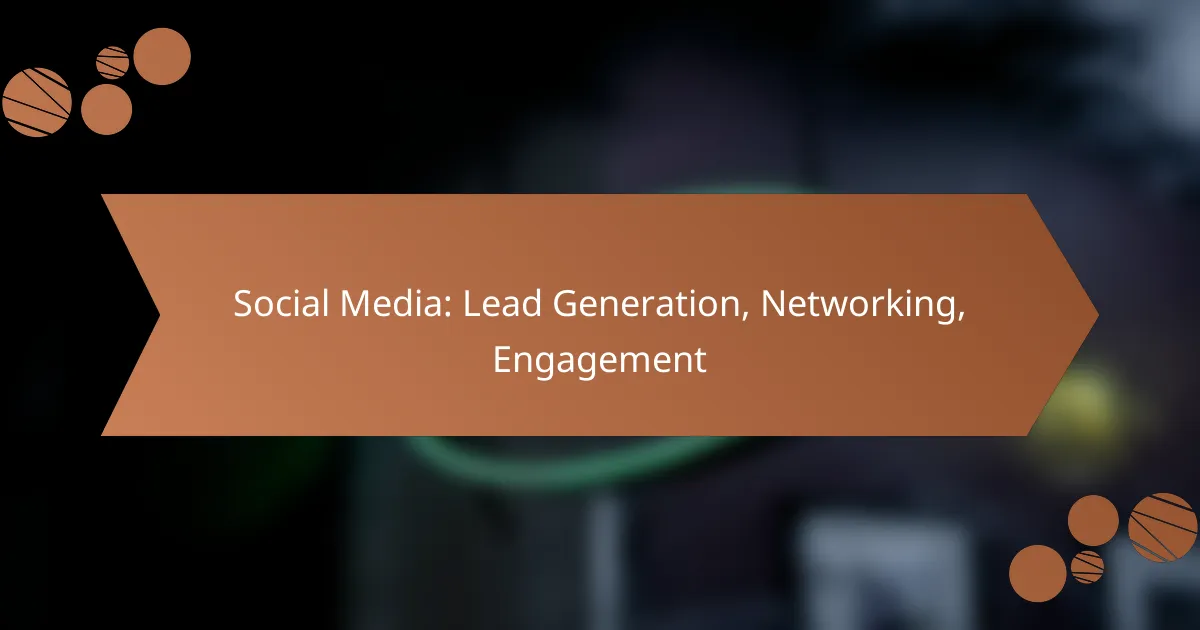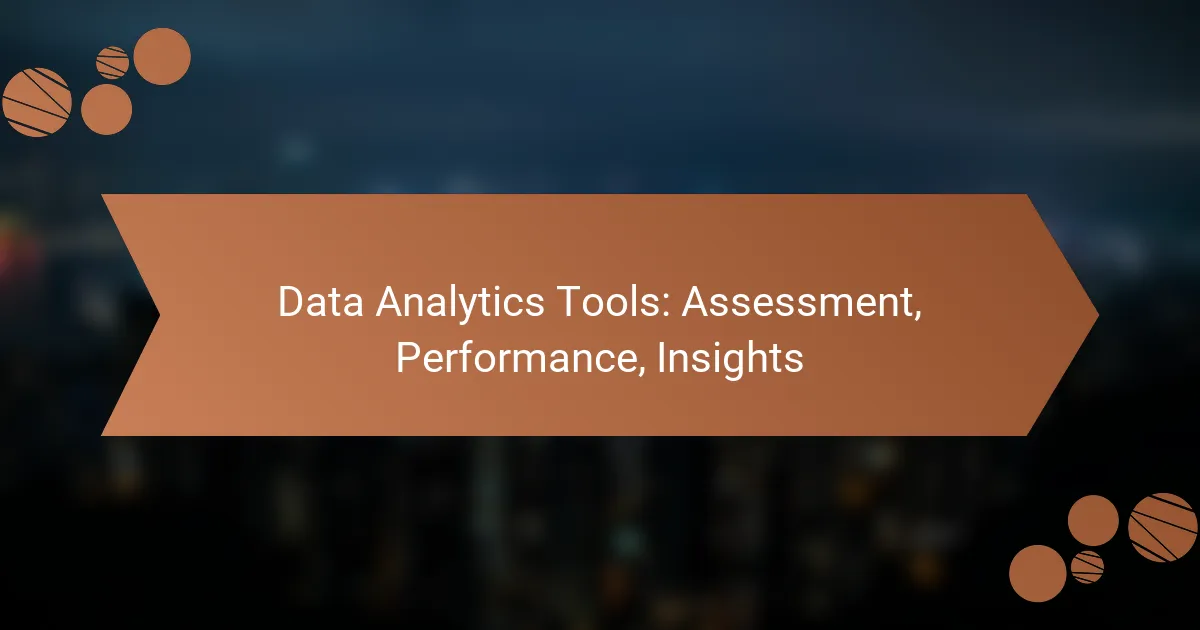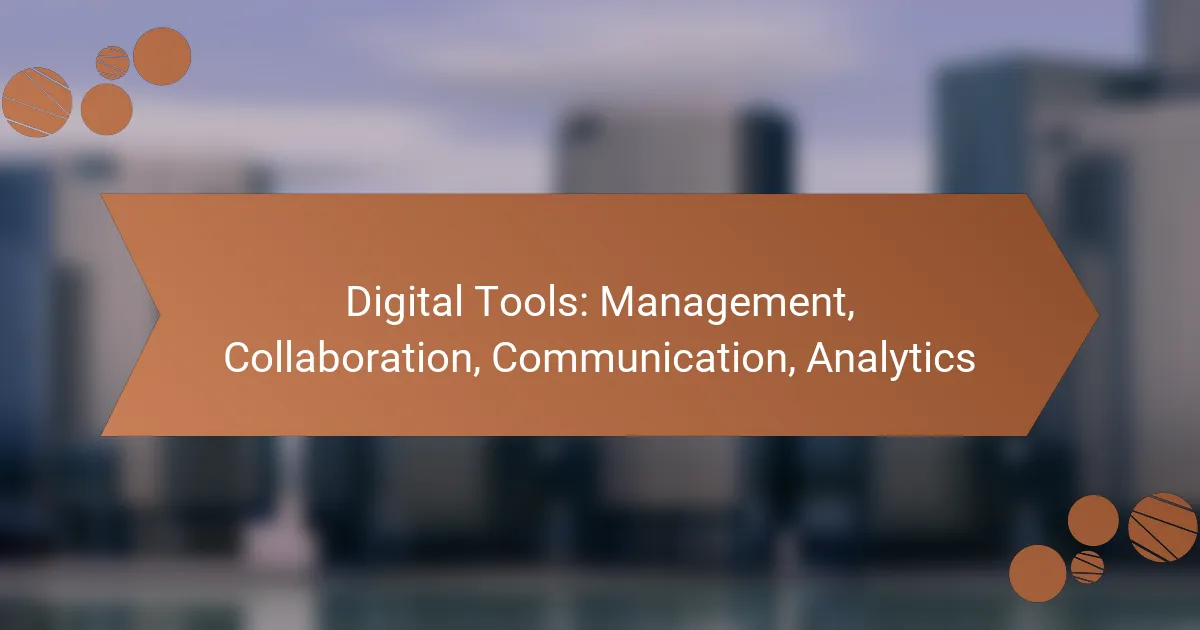Social media serves as a powerful tool for lead generation, enabling businesses to connect with potential customers through targeted advertising and meaningful engagement. By fostering genuine relationships and actively participating in relevant communities, brands can enhance their visibility and drive traffic to their online platforms. Additionally, utilizing interactive features and compelling content can significantly boost audience participation and strengthen connections with followers.
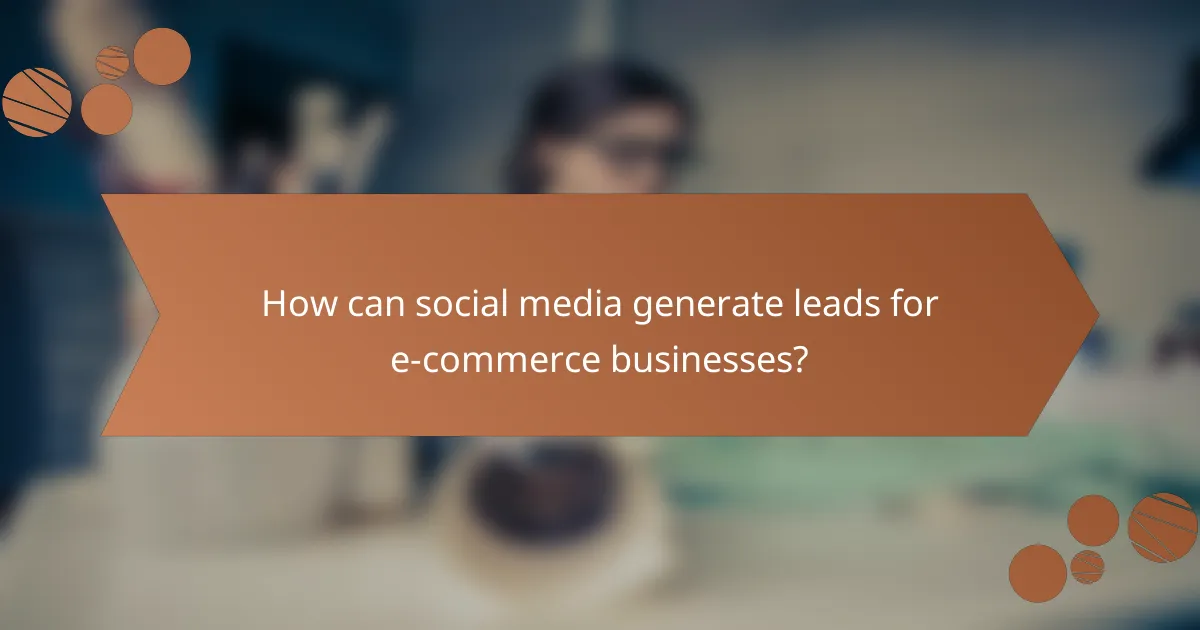
How can social media generate leads for e-commerce businesses?
Social media can effectively generate leads for e-commerce businesses by leveraging targeted advertising, networking, and engagement strategies. These platforms allow businesses to reach potential customers, build relationships, and drive traffic to their online stores.
Targeted advertising on Facebook
Facebook’s targeted advertising enables e-commerce businesses to reach specific demographics based on interests, behaviors, and location. By creating custom audiences, companies can tailor their ads to attract users most likely to convert into customers.
To maximize effectiveness, use eye-catching visuals and clear calls-to-action in your ads. Monitor ad performance regularly and adjust targeting parameters to optimize results, aiming for a cost-per-click (CPC) that aligns with your budget.
LinkedIn networking strategies
LinkedIn is ideal for B2B e-commerce businesses looking to connect with industry professionals and decision-makers. Building a strong profile and engaging with relevant groups can help establish credibility and attract potential leads.
Consider sharing valuable content, such as industry insights or case studies, to showcase expertise. Personalize connection requests and follow up with meaningful conversations to nurture relationships and convert connections into leads.
Instagram influencer partnerships
Partnering with influencers on Instagram can significantly enhance brand visibility and lead generation for e-commerce businesses. Influencers can showcase your products to their followers, creating authentic endorsements that resonate with potential customers.
When selecting influencers, consider their audience demographics and engagement rates. Collaborate on creative campaigns that highlight your products in a relatable context, and track the performance of these partnerships to assess ROI.
Content marketing on Twitter
Twitter is a powerful platform for content marketing, allowing e-commerce businesses to share updates, promotions, and engaging content quickly. By using relevant hashtags and participating in trending conversations, you can increase your visibility and attract potential leads.
Regularly post valuable content, such as tips or product highlights, and engage with followers through replies and retweets. Utilize Twitter Ads to boost your reach and drive traffic to your website, focusing on campaigns that target specific interests or demographics.
Utilizing Pinterest for product discovery
Pinterest serves as a visual discovery platform, making it an excellent tool for e-commerce businesses to showcase products. By creating appealing pins that link back to your online store, you can drive traffic and generate leads from users seeking inspiration.
Optimize your pins with high-quality images, detailed descriptions, and relevant keywords. Consider using Rich Pins to provide additional information directly on the pin, enhancing user engagement and encouraging clicks to your website.
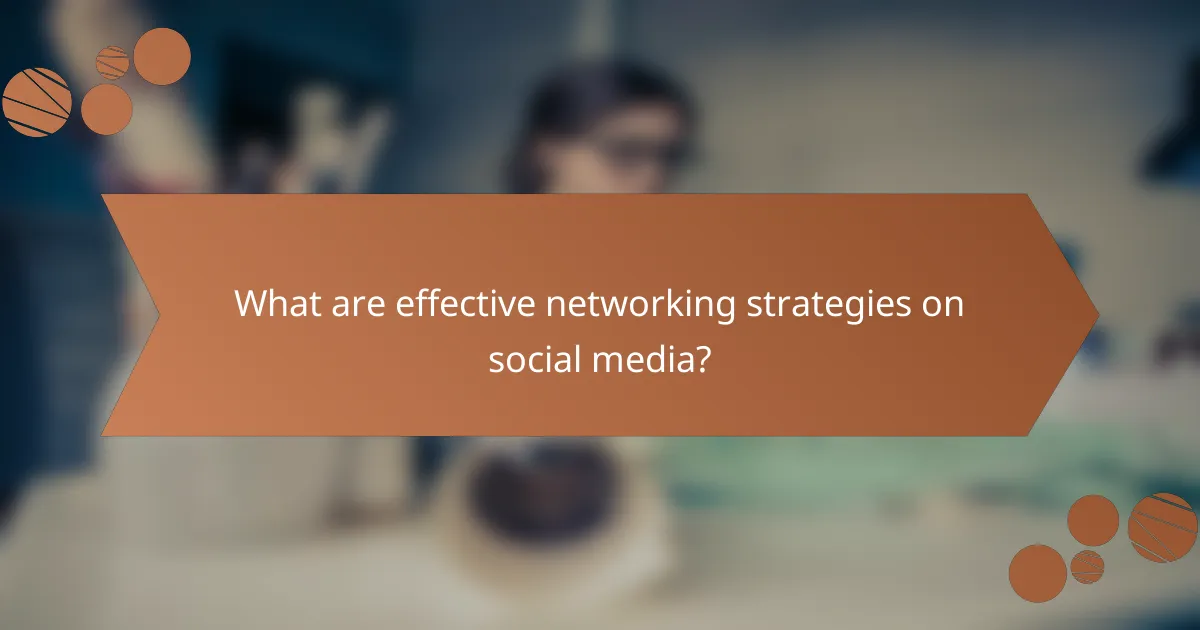
What are effective networking strategies on social media?
Effective networking strategies on social media involve building genuine relationships, engaging with relevant communities, and leveraging platforms to connect with like-minded professionals. By focusing on these areas, individuals can enhance their visibility and foster valuable connections.
Building relationships through LinkedIn
LinkedIn is a powerful platform for professional networking, allowing users to connect with industry peers and potential clients. To build relationships, personalize connection requests and engage with posts by commenting or sharing insights. This approach fosters a sense of community and encourages reciprocal engagement.
Consider joining LinkedIn groups related to your field to expand your network further. Actively participate in discussions and share valuable content to establish yourself as a knowledgeable resource. Aim to connect with a diverse range of professionals to enhance your networking opportunities.
Joining Facebook groups for niche markets
Facebook groups can be an effective way to connect with individuals in specific niches or industries. Look for groups that align with your professional interests and actively participate by asking questions, sharing experiences, and providing support to others. This interaction can lead to meaningful connections and collaborations.
When joining groups, ensure they are active and have a substantial number of members. Avoid groups that are overly promotional or spammy, as they can dilute the quality of interactions. Focus on contributing valuable insights and building trust within the community to maximize your networking potential.

How can brands enhance engagement on social media?
Brands can enhance engagement on social media by utilizing interactive features, creating compelling content, and fostering community connections. These strategies encourage audience participation and build stronger relationships with followers.
Interactive polls and quizzes on Instagram
Interactive polls and quizzes on Instagram are effective tools for boosting engagement. They allow brands to gather insights while making followers feel involved in the decision-making process. For instance, a fashion brand might ask followers to vote on their favorite outfit, creating a sense of community.
To maximize impact, keep polls and quizzes short and visually appealing. Use engaging visuals and clear calls to action. Aim for a frequency of one to two polls per week to maintain interest without overwhelming your audience.
Live streaming events on Facebook
Live streaming events on Facebook can significantly enhance audience engagement by providing real-time interaction. Brands can host Q&A sessions, product launches, or behind-the-scenes content, allowing followers to connect directly with the brand. This immediacy fosters a sense of authenticity and urgency.
When planning a live event, promote it in advance to build anticipation. Aim for a duration of 30 to 60 minutes to keep viewer attention. Encourage audience participation by responding to comments and questions during the stream, which can lead to higher engagement rates.
Creating shareable content on TikTok
Creating shareable content on TikTok is crucial for brands looking to expand their reach. Content that resonates emotionally or entertains is more likely to be shared, increasing visibility. Short, catchy videos that align with trending challenges or themes can attract a wider audience.
To enhance shareability, focus on high-quality visuals and relatable themes. Use popular music and hashtags to increase discoverability. Posting consistently, ideally a few times a week, can help maintain momentum and keep your audience engaged.
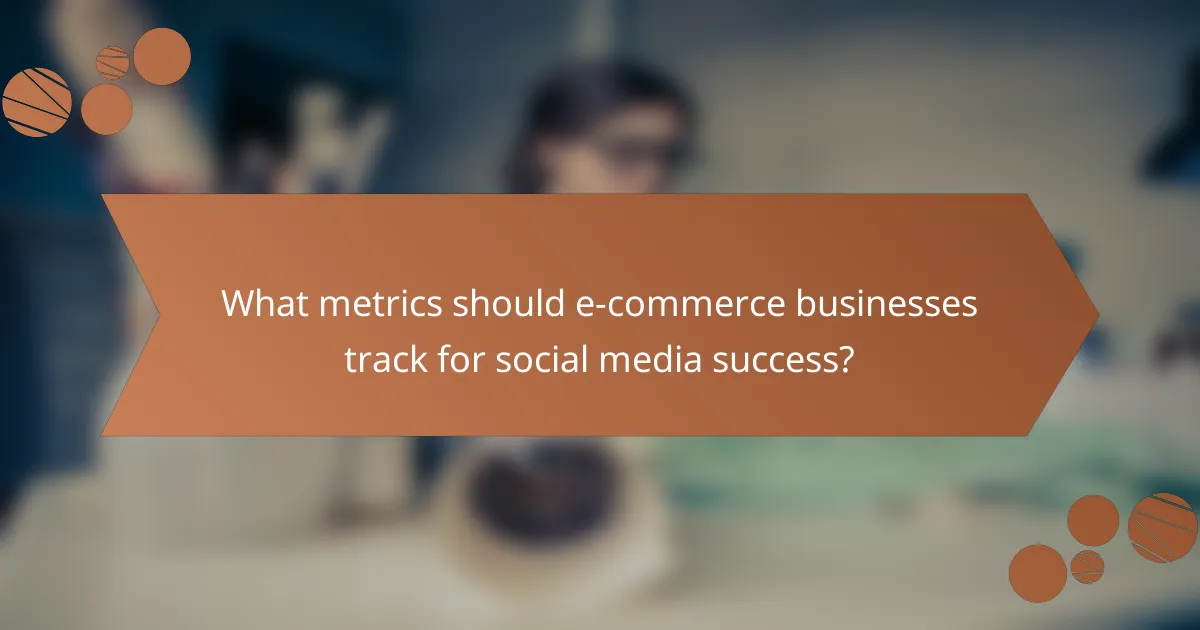
What metrics should e-commerce businesses track for social media success?
E-commerce businesses should focus on key metrics such as engagement rates and lead conversion rates to measure their social media success. These metrics provide insights into how well a brand connects with its audience and the effectiveness of its social channels in generating sales.
Engagement rates across platforms
Engagement rates indicate how actively users interact with a brand’s content on social media. This includes likes, shares, comments, and overall interactions relative to the number of followers. A high engagement rate, typically ranging from 1% to 5% depending on the platform, suggests that the content resonates well with the audience.
To improve engagement, e-commerce businesses should create compelling content that encourages interaction. This can include polls, questions, or visually appealing posts. Monitoring engagement across different platforms helps identify which channels yield the best results, allowing for more targeted strategies.
Lead conversion rates from social channels
Lead conversion rates measure the percentage of social media interactions that result in a desired action, such as signing up for a newsletter or making a purchase. A typical conversion rate for social media can range from 1% to 3%, but this varies based on the industry and the effectiveness of the marketing strategy.
To enhance lead conversion rates, e-commerce businesses should ensure their social media profiles are optimized with clear calls to action and links to product pages. Additionally, running targeted ad campaigns can significantly boost conversions by reaching specific demographics. Regularly analyzing these rates helps refine marketing efforts and improve overall ROI.

What are the prerequisites for successful social media lead generation?
Successful social media lead generation requires a clear understanding of your target audience and a consistent brand voice. These elements help create engaging content that resonates with potential customers and drives conversions.
Defining target audience profiles
To effectively generate leads, you must define your target audience profiles. This involves identifying demographics, interests, and behaviors that align with your product or service. Consider using tools like surveys or social media analytics to gather data on your audience.
Once you have this information, create detailed buyer personas that represent your ideal customers. These personas should include age, gender, location, and purchasing habits, which will guide your content strategy and advertising efforts.
Establishing brand voice and messaging
Your brand voice and messaging should reflect your company’s values and resonate with your target audience. Establish a tone that aligns with your brand identity, whether it’s professional, casual, or playful. Consistency in your messaging across all platforms builds trust and recognition.
Craft key messages that highlight your unique selling propositions. These messages should be clear and compelling, encouraging engagement and sharing. Regularly review and adjust your messaging based on audience feedback and engagement metrics to ensure it remains effective.

How do social media algorithms impact lead generation?
Social media algorithms significantly influence lead generation by determining which content reaches users. These algorithms prioritize engagement, meaning that posts with higher interaction rates are more likely to be seen, affecting how businesses connect with potential customers.
Understanding Facebook’s algorithm changes
Facebook’s algorithm has evolved to prioritize meaningful interactions over mere content volume. This means that posts from friends and family often take precedence over business pages, making it crucial for brands to foster genuine engagement through comments and shares.
To adapt, businesses should focus on creating high-quality, interactive content that encourages user participation. For example, using polls, questions, or live videos can enhance visibility and engagement, leading to better lead generation outcomes.
Adapting to Instagram’s engagement metrics
Instagram’s algorithm emphasizes engagement metrics such as likes, comments, and shares to determine content visibility. Posts that generate quick interactions are favored, making it essential for brands to post at optimal times when their audience is most active.
Brands can improve their lead generation by using visually appealing content, leveraging Instagram Stories, and utilizing hashtags effectively. Regularly analyzing engagement metrics can help businesses refine their strategies and identify what resonates best with their audience.
